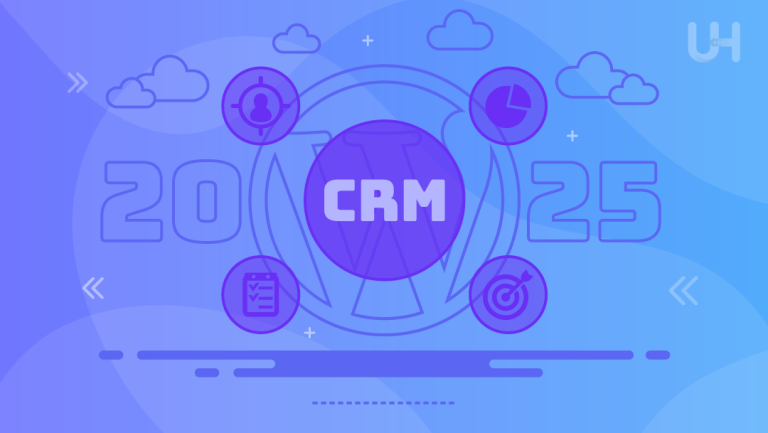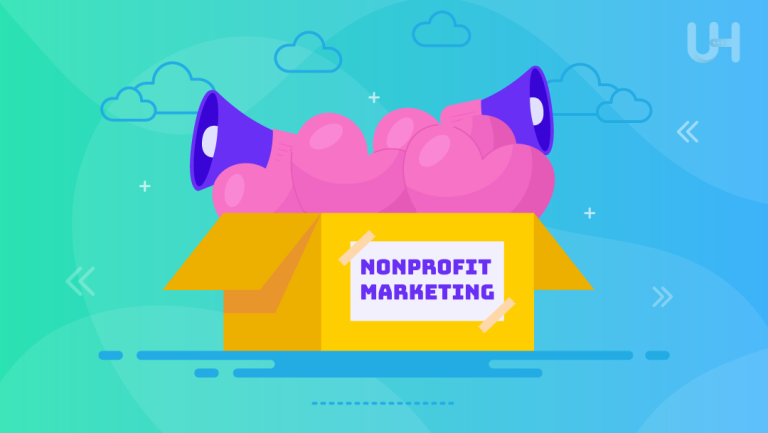Consent-based marketing is a customer-oriented approach that ensures businesses obtain explicit permission before engaging with their audience. Traditional marketing often utilizes broad, intrusive strategies. These included cold calls, unsolicited emails, and untargeted advertisements. Businesses focus on reaching the maximum number of people without being concerned about consumer preferences. Nevertheless, such methods often annoyed consumers and harmed brand reputations. For this reason, the need for more ethical and customer-centered approaches increased. This created the passage of privacy-based digital marketing trends.
Consent driven marketing has become a necessity for businesses. It ensures that the customers willingly opt to receive the promotional content. By prioritizing transparency, companies can build trust and increase their credibility. Further, strict privacy regulations such as GDPR and CCPA demand that companies adopt consent-driven practices. Through this approach, businesses respect consumer choices and develop meaningful interactions. With the evolution of marketing, consent-based strategies define the new standard for ethical and effective outreach.
What is Consent-Based Marketing?
Consent-based marketing is a strategy that makes sure businesses get explicit permission from consumers before engaging them with promotional content. Unlike traditional methods, this approach prioritizes customer privacy and choice. It asks for consent through clear and simple methods, such as opt-in forms or subscription prompts. This focuses the business on permission, as it respects consumer boundaries and ensures they don’t have unwanted interactions. Such a strategy increases trust, strengthens relationships, and promotes a more ethical practice in marketing. It allows the company to engage with its audience in ways that feel meaningful and valued.
Components of Consent-Based Marketing
The key components of consent based marketing are transparency, opt-ins, and consumer control.
Transparency
Transparency is the core of consent-based marketing. Businesses must tell consumers how they intend to use their data. This includes providing detailed privacy policies, which outline what data is collected, why it is needed, and how it will be used. When consumers understand the purpose behind sharing their information, they are likely to trust the business. Transparency also involves being honest about the benefits customers will receive, such as personalized marketing recommendations. By being transparent, firms set the foundation for a trusted relationship with an audience.
Opt-Ins
Opt-ins are among those important elements of consent-based marketing. They allow customers the possibility of actively choosing whether they have permission to engage with content associated with a brand, perhaps sign up for newsletters, click and accept HTTP cookie policies, and register for promotions. Double opt-ins make the subscriber click a confirmation link sent through email. In doing this, it means they are interested, and this limits the potential for spamming. Opt-ins create the sense of being in charge of the consumers; thus, there will be increased trust and involvement. The use of opt-ins in businesses is a good strategy as they target only people interested in what is being sold.
Consumer Control
Consumer control is another vital factor that relates to consent-based marketing. It enables users to control their preferences and choose the kind of content they want to receive, as we know content is king. Companies should also provide easy mechanisms for updating communication preferences, such as frequency or type of content. Another way is providing an easy mechanism to opt-out, which strengthens consumer trust and respects their choices. Consumers are more likely to remain loyal to the brand if they feel empowered to control their interactions. This level of flexibility not only enhances user satisfaction but also brings in compliance with privacy regulations.
Implement Consent-Based Marketing for Your Business!
Start building trust and improving engagement today with the right hosting solutions. Check out Ultahost’s Social Network Hosting for secure and compliant hosting options tailored to your marketing needs.
Comparison with Traditional Marketing
Consent-based marketing is inherently different from traditional ways of marketing. Traditional methods rely on unsolicited practices, often involving cold calls, bulk e-mails, or intrusive advertising that focuses more on reach rather than relevance. Such practices would flood consumers’ inboxes and may harm brands’ reputations. In contrast, consent marketing targets people in a contextualized, appropriate manner with relevant dynamic content. That is because acquiring prior consent ensures businesses will get accepted messages as opposed to obnoxious ones. All these things are associated with enhanced engagement, positive customer feedback, and solid long-term business relations. As well, these methods correspond with modern regulations about privacy.
How Consent-Based Marketing Works
Consent-based marketing can be achieved by getting explicit permission from the consumer through clear processes and using technology to manage and respect that preference.
Obtaining Consent Using Clear Opt-in Forms
The first step in consent-based marketing is the use of clear and simple opt-in forms. These forms must be easy to understand and free of jargon. Businesses should highlight what the consumer is agreeing to, such as receiving newsletters or promotional offers. By keeping the language direct, consumers can make informed decisions. Including checkboxes for consent ensures transparency and avoids assumptions about user preferences.
Providing Detailed Privacy Policies
Privacy policies are crucial in building trust. Businesses should explicitly indicate the way they collect, store, and use consumer data. It should also show the rationale behind collecting data and how it will be of benefit to the consumer. Adding examples such as personalized recommendations increases transparency. They should also make privacy policies accessible on their websites. Updating these policies shows that one is committed to respecting the rights of consumers.
Double Opt-Ins Confirmation
Double opt-ins have added security and clarity. The user is sent a confirmation e-mail after they have registered to confirm their consent. This procedure means that the consumer has actively decided to engage with the brand. It minimizes accidental registration and spamming. A company also shows that it cares about consumer choices by employing double opt-ins.
Examples of Consent-Driven Marketing Tools
Several tools make getting consent very easy. The most common one is an email list form, whereby a user opts in for a newsletter or update. The cookie consent banner is the most popular example. These banners give consumers control over their browsing data and preferences. A business hosted on Enterprise WP Hosting can use a pop-up to get subscribers for promotions or special offers. Each of these tools must ensure user experience and clarity.
Role of Technology in Streamlining Consent Management
Technology plays a very central role in the efficient management of consent. GDPR hosting helps in the automation of consent tracking and storage among businesses. These tools enable them to record user permissions to ensure that they are legally compliant. Customer Relationship Management, or CRM systems enables companies to integrate consent preferences for their personalized campaigns. Analytics platforms can also interpret consent data to enhance marketing. By making use of technology, businesses can smoothen out consent procedures and maintain accuracy.
Consent-based marketing concentrates on obtaining clear and explicit consent at each step. Businesses have trust through user-friendly tools, detailed privacy policies, and the advanced technology on offer, thus ensuring compliance. This approach supports developing useful relationships with customers and sustainable growth.
Why Consent-Based Marketing Matters for Your Business

Consent-based marketing matters for your business because it fosters trust, improves brand reputation, ensures legal compliance, and leads to higher engagement and ROI.
Builds Consumer Trust
Consent-based marketing builds trust by respecting consumer choices. When customers see businesses asking for permission, they feel valued and respected. This transparency fosters confidence and encourages long-term loyalty. Consumers are more likely to share their data when they trust a brand. Over time, this trust strengthens the relationship between the business and its audience, leading to increased engagement and retention.
Improves Brand Reputation
Adopting consent-based marketing enhances a company’s reputation. Ethical practices show that a business prioritizes consumer privacy and fairness. Customers appreciate brands that align with their values and respect their boundaries. By avoiding intrusive tactics, companies position themselves as credible and responsible. A strong reputation not only attracts new customers but also improves word-of-mouth referrals, boosting the overall brand image.
Ensures Legal Compliance
Consent-based marketing helps businesses comply with privacy laws like GDPR and CCPA. These regulations require companies to obtain explicit consent before collecting or using personal data. Non-compliance can lead to hefty fines and legal issues, damaging the brand’s credibility. By adhering to these laws, businesses demonstrate accountability and responsibility. Additionally, compliance minimizes risks and ensures smooth operations across different markets.
Leads to Higher Engagement Rates
When businesses target only consenting audiences, engagement rates improve. Consumers who opt in are genuinely interested in the content or offers being shared. This results in higher click-through rates, better email open rates, and more meaningful interactions. Unlike remarketing, consent-driven strategies focus on quality over quantity. This approach maximizes return on investment (ROI) by reaching the right audience at the right time.
Key Benefits of Consent-Based Marketing
The key benefits of consent-based marketing include stronger customer relationships, better data quality, enhanced personalization, and a future-proof strategy.
Enhanced Customer Relationships
Consent-based marketing strengthens customer relationships by fostering trust and transparency. When businesses ask for permission before reaching out, customers feel valued and respected. This encourages more meaningful interactions, as customers are more likely to engage with brands that align with their preferences. Over time, these positive experiences lead to increased loyalty, and loyal customers are more likely to recommend the brand to others. By focusing on consent, businesses create lasting relationships that go beyond mere transactions.
Better Data Quality
Consent-based marketing leads to better data quality by focusing on willingly provided information. When consumers opt-in, they share their data with the expectation of receiving relevant and personalized content. This results in higher-quality data that businesses can use for accurate targeting. Unlike data collected through intrusive methods, consented data reflects actual interest and intent, making marketing efforts more effective. Furthermore, businesses can continually update and refine this data to ensure ongoing relevance and precision in their campaigns.
Personalization Opportunities
With consented data, businesses can craft highly personalized campaigns. By using the information customers willingly share, companies can tailor their messaging to meet individual needs and preferences. Personalization can include product recommendations, targeted email offers, or customized web experiences. Consumers are more likely to engage with personalized content because it resonates with their interests. As a result, personalized campaigns not only improve customer satisfaction but also boost conversion rates and overall campaign effectiveness.
Future-Proof Marketing Strategy
Consent-based marketing is a future-proof strategy that keeps businesses ahead of evolving privacy laws and changing consumer expectations. With increasing regulations like GDPR and CCPA, businesses must prioritize consumer consent to remain compliant and avoid penalties. Additionally, as consumers become more privacy-conscious, they increasingly prefer brands that respect their data and choices. By embracing consent-based practices now, businesses ensure they are well-prepared for future shifts in privacy laws and consumer attitudes. This proactive approach helps maintain a competitive edge in a rapidly changing digital landscape.
The Evolution of Consent-Based Marketing
The evolution of consent-based marketing reflects a shift from intrusive tactics to ethical, customer-centric strategies driven by consumer advocacy and privacy movements.
Historical Context
Marketing practices have undergone a significant transformation over the years. In the past, businesses relied heavily on intrusive tactics like cold calls, unsolicited emails, and mass advertisements. These methods were designed to reach as many people as possible, regardless of whether they were interested. However, consumers grew frustrated with these interruptions, leading to a rise in ad-blocking tools and increased skepticism toward unsolicited communications. As a result, businesses had to shift their approach. The focus began to move toward more respectful and customer-focused strategies, leading to the rise of consent-based marketing. This change emphasized obtaining explicit permission before engaging with consumers, prioritizing their preferences and privacy.
The Role of Consumer Advocacy and Privacy Movements
Consumer advocacy and privacy movements have played a crucial role in shaping the evolution of marketing strategies. Over the years, consumer rights groups and privacy advocates have pushed for stronger protections regarding personal data. Movements like these have led to the establishment of privacy laws such as the GDPR and CCPA. These laws aim to ensure that consumers have control over their personal information and how it is used by businesses. As public awareness of privacy concerns grew, so did the demand for ethical marketing practices. This shift in consumer expectations encouraged businesses to adopt consent-based marketing, aligning their strategies with consumer rights. Ultimately, these movements have driven the transition from aggressive, intrusive marketing to a more respectful, permission-based approach.
Comparing Consent-Based Marketing with Other Marketing Approaches
Comparing consent-based marketing with other approaches highlights its focus on consumer control, data transparency, and long-term sustainability, distinguishing it from outbound and permission marketing strategies.
Outbound Marketing vs. Consent-Based Marketing
Outbound marketing and consent-based marketing are fundamentally different in their approach. It involves pushing messages to a broad audience, often through methods like cold calling, TV ads, and unsolicited emails. The goal is to cast a wide net and generate leads, regardless of whether the target audience is interested. In contrast, consent-based marketing focuses on obtaining explicit permission from individuals before sending them promotional content. This strategy relies on engagement from an already interested audience, ensuring messages are more relevant and welcomed. As a result, consent-based marketing typically yields higher conversion rates and customer satisfaction. The key difference lies in respect for consumer preferences—while outbound marketing risks interrupting consumers, consent-based marketing ensures they are in control of the interaction.
Permission Marketing: Overlap and Differences
Permission marketing, popularized by Seth Godin, shares many similarities with consent-based marketing. Both approaches emphasize obtaining prior approval before contacting potential customers. However, there are subtle differences. While permission marketing focuses on getting explicit consent to send messages or offers, consent-based marketing often extends to how data is collected and used. Consent-based marketing involves more transparency and consumer control, allowing individuals to manage their preferences and opt-out when they wish. Additionally, consent-based marketing aligns more closely with privacy laws and regulations, ensuring that businesses are compliant with legal requirements. While both strategies prioritize respect for consumer choice, consent-based marketing places a stronger emphasis on data protection and consumer rights.
Why Consent-Driven Marketing is More Sustainable
Consent-driven marketing is more sustainable in the long run for several reasons. First, it builds trust between businesses and consumers by focusing on transparency and ethical practices. As consumers become more privacy-conscious, they are increasingly wary of companies that use intrusive methods. By adopting consent-based practices, businesses can cultivate long-term relationships with loyal customers who value their privacy. Additionally, consent-driven marketing is aligned with evolving privacy laws, such as GDPR and CCPA, which ensure businesses remain compliant and avoid penalties. This approach also reduces wasted marketing efforts by targeting only interested individuals, leading to more efficient use of resources. In an increasingly regulated and privacy-focused environment, consent-based marketing is a future-proof strategy that adapts to consumer expectations and legal requirements.
Take Your Consent-Based Marketing to The Next Level!
Ensure secure, compliant data management while enhancing customer engagement. Discover how Ultahost’s CRM Hosting can support your marketing efforts. Don’t miss the opportunity!
Tools and Platforms for Consent-Based Marketing
Tools and platforms for consent-based marketing include cookie consent managers, email marketing platforms, and consent management systems, all of which help ensure compliance and enhance customer trust.
Popular Tools for Managing Consent
There are several popular tools available for managing consent in marketing strategies. Cookie consent managers are one of the most common tools, allowing businesses to display clear and customizable banners asking for user consent regarding cookies and data collection. These tools are essential for ensuring compliance with privacy laws like GDPR and CCPA. Additionally, email marketing platforms offer built-in features to manage consent. These platforms allow businesses to set up opt-in forms, track consent statuses, and send targeted campaigns to those who have explicitly opted in. Other tools, like consent management platforms (CMPs), help businesses collect, store, and manage user preferences in one centralized location. These tools are designed to streamline consent tracking and ensure legal compliance while maintaining a positive user experience.
Features to Look for in Consent Management Tools
When selecting consent management tools, there are several key features to consider. First, ensure that the tool is customizable to match your brand’s style and messaging. The tool should allow you to create clear, user-friendly opt-in forms and consent requests. Second, look for tools that offer granular consent options, enabling users to control their data preferences in detail. This feature is important for complying with privacy laws and providing a transparent user experience. Third, the tool should integrate easily with your existing website or marketing platforms to ensure a seamless workflow. Additionally, ensure that the platform provides reporting features to track consent statuses and generate compliance reports. Finally, choose a tool that supports multi-device compatibility, ensuring a consistent experience across all touchpoints.
Integrating Consent Platforms with Existing Marketing Strategies
Integrating consent management tools with your existing marketing strategies is crucial for maintaining a cohesive approach. Consent platforms should work smoothly with your email marketing tools, CRM systems, and website. For example, integrating consent data with CRM systems allows businesses to personalize communications based on customer preferences. Additionally, it’s important to ensure that consent data is automatically updated across platforms, so marketers can avoid sending unsolicited content. To enhance customer experience, integrate opt-in forms and cookie consent banners at key moments on your website, such as when users sign up for newsletters or make purchases. By doing so, businesses can capture consent without disrupting the user journey. Finally, ensure that your marketing campaigns are designed to respect consent preferences, only targeting users who have opted in for specific content.
Challenges of Implementing Consent-Based Marketing
The challenges of implementing consent-based marketing include educating customers on data use, the potential loss of a wider audience, and overcoming opt-in barriers, which can be addressed by simplifying processes and offering incentives.
Increased Effort to Educate Customers on Data Use
One of the biggest challenges businesses face when implementing consent-based marketing is educating customers about how their data will be used. Many consumers are not fully aware of the implications of data collection, which can lead to reluctance to provide consent. This educational gap means businesses must dedicate resources to explain their data policies clearly and effectively. Without proper education, customers may feel suspicious or confused, which can hinder opt-in rates. To overcome this, businesses must use simple, transparent language in their consent requests, ensuring customers understand the value and purpose of their data sharing. Additionally, providing clear privacy policies and FAQs can help reassure customers and build trust.
Potential Loss of a Wider Audience Due to Opt-In Requirements
Another challenge is the potential loss of a broader audience due to opt-in requirements. Since only users who explicitly opt-in will receive marketing content, businesses may not reach as large an audience as they would with traditional marketing methods. This limitation can be frustrating, especially for businesses accustomed to reaching a broad spectrum of potential customers. However, the trade-off is that consent-based marketing leads to more engaged and qualified leads, which are more likely to convert. By focusing on a smaller, more interested group, businesses can improve targeting accuracy and ROI. Though the audience may be narrower, the quality of engagement is typically much higher.
Strategies to Overcome These Challenges
Strategies to overcome the challenges of consent-based marketing include simplifying the consent process and offering incentives to encourage opt-ins and enhance customer engagement.
Simplify Consent Processes
To address the challenges of educating customers and reducing opt-in barriers, businesses can simplify the consent process. Opt-in forms should be easy to find, quick to complete, and clearly explain what users are consenting to. Instead of lengthy or complicated forms, concise and straightforward requests increase the likelihood that customers will engage. It’s important to make the process as frictionless as possible to avoid overwhelming users with unnecessary steps. Additionally, using a single, unified consent platform can streamline the process, making it easier for users to manage their preferences across various touchpoints.
Provide Incentives for Opting In
Offering incentives can help increase opt-in rates and encourage customers to share their data willingly. Providing perks such as discounts, exclusive content, or access to special offers can motivate users to opt in. These incentives create a win-win situation, as consumers receive value in exchange for their consent, and businesses gain access to a more engaged audience. Incentives can be offered immediately or as part of a loyalty program, adding additional value to the customer experience. However, incentives must align with the consumer’s interests and needs, ensuring that the exchange feels relevant and fair.
Industries That Benefit the Most from Consent-Based Marketing
- E-commerce: Consent-based marketing is essential for targeting customers with personalized offers and promotions while ensuring data privacy and building trust. You can use Ultahost’s eCommerce Hosting server as it provides the secure and scalable environment needed to support your marketing efforts while protecting customer data.
- Healthcare: Protecting sensitive patient information through explicit consent is critical for complying with regulations and maintaining privacy in marketing efforts.
- Finance and Banking: Consent-driven marketing helps financial institutions manage customer preferences and data securely, ensuring compliance with privacy laws like GDPR and CCPA.
- Technology and SaaS: Technology companies and SaaS providers use consent-based marketing to respect user privacy, collect data for personalized offers, and comply with privacy regulations.
Conclusion
Consent-based marketing is a crucial strategy in today’s privacy-conscious digital landscape. It not only respects consumer rights but also boosts business outcomes by fostering trust and engagement. By prioritizing transparency and obtaining explicit consent, businesses can build stronger relationships with their audience and improve conversion rates. Moreover, adopting consent-driven strategies helps companies stay compliant with evolving privacy regulations, ensuring long-term sustainability. Therefore, businesses should embrace consent-based marketing to drive both ethical practices and growth in the competitive market.
If you’re ready to take your marketing strategy to the next level, ensure your website is hosted securely with Ultahost’s secure website hosting. By prioritizing transparency and consumer control, your business can thrive in today’s privacy-conscious digital landscape.
FAQ
What is consent-based marketing?
Consent-based marketing is a strategy that requires businesses to obtain explicit permission from consumers before sending them promotional content.
Why is consent-based marketing important?
It is crucial because it builds trust with consumers, ensures legal compliance with privacy regulations, and improves targeting accuracy.
How does consent-driven marketing work?
Consent-driven marketing involves asking consumers for their explicit consent to receive communications, often through opt-in forms.
What are the benefits of consent-based marketing?
The benefits include higher customer engagement, improved data quality, legal compliance, and a more ethical approach to using consumer data.
How does consent-based marketing differ from traditional marketing?
Unlike traditional marketing, which may push messages to uninterested audiences, consent-based marketing targets users who have voluntarily opted in, ensuring relevancy and trust.
What are example of consent-based marketing?
Examples include Asking for explicit consent before adding someone to a marketing list and sending emails to people who have subscribed to your newsletter.
What is the role of GDPR in consent-based marketing?
GDPR requires businesses to obtain clear consent from consumers for data collection and marketing activities, ensuring transparency.
















